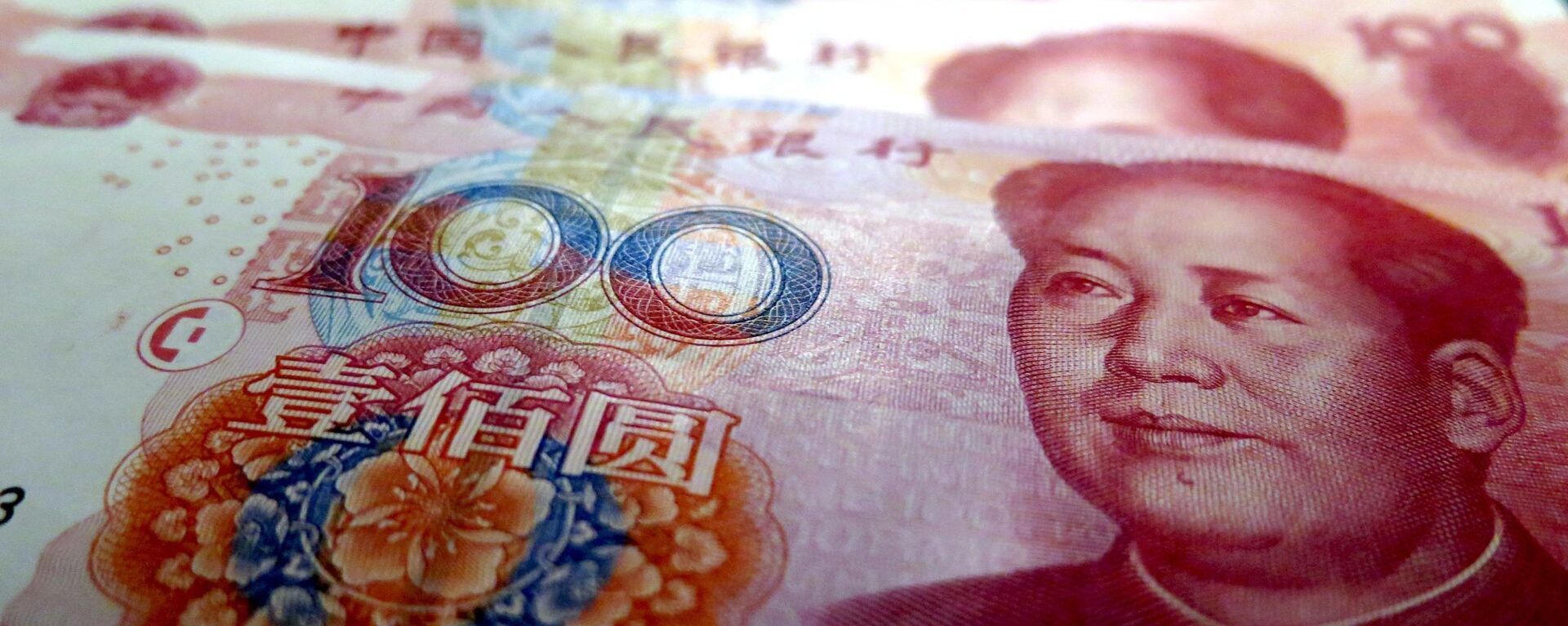https://sputnikglobe.com/20211229/beijing-pledges-proactive-fiscal-steps-to-shore-up-chinese-economy-next-year-1091887043.html
Beijing Pledges Proactive Fiscal Steps to Shore Up Chinese Economy Next Year
Beijing Pledges Proactive Fiscal Steps to Shore Up Chinese Economy Next Year
Sputnik International
The Chinese Finance Ministry has announced that the government will unveil a number of proactive fiscal measures in 2022 to stabilise the nation's economy
2021-12-29T13:24+0000
2021-12-29T13:24+0000
2022-08-06T13:54+0000
china
growth
government
think tank
economic slowdown
covid-19
economy
https://cdn1.img.sputnikglobe.com/img/07e5/0c/1d/1091884096_0:10:3070:1737_1920x0_80_0_0_93dfc968848d32bec5990578575bb51a.jpg
The Chinese Finance Ministry has announced that the government will unveil a number of proactive fiscal measures in 2022 to stabilise the nation's economy.The announcement came as the People's Bank of China (PBOC) vowed to use a variety of monetary policy tools to keep liquidity "reasonable and ample" and ensure that the country's credit growth is stable.PBOC Governor Yi Ga told the state-run Chinese news agency Xinhua his bank would focus on making finance better serve the real economy next year.The pledge comes amid an economic slowdown in China, caused by a recent property market slump that has affected industrial output, and weakened investment and private consumption.The new COVID-19 variant Omicron was earlier described as an added threat to the Chinese economy given that it could hit demand for exports, among other negative factors.Meanwhile, the Chinese Academy of Social Sciences (CASS), a leading government think tank, has warned that the nation's property downturn is likely to persist and further hamper the country's economy next year. According to CASS, the Chinese economy is expected to grow about 5.3 percent in 2022.
https://sputnikglobe.com/20210406/chinese-central-bank-rolls-out-digital-yuan-in-a-first-for-a-major-economy-1082554714.html
china
Sputnik International
feedback@sputniknews.com
+74956456601
MIA „Rossiya Segodnya“
2021
Oleg Burunov
https://cdn1.img.sputnikglobe.com/img/07e4/09/0b/1080424846_0:0:2048:2048_100x100_80_0_0_3d7b461f8a98586fa3fe739930816aea.jpg
Oleg Burunov
https://cdn1.img.sputnikglobe.com/img/07e4/09/0b/1080424846_0:0:2048:2048_100x100_80_0_0_3d7b461f8a98586fa3fe739930816aea.jpg
News
en_EN
Sputnik International
feedback@sputniknews.com
+74956456601
MIA „Rossiya Segodnya“
Sputnik International
feedback@sputniknews.com
+74956456601
MIA „Rossiya Segodnya“
Oleg Burunov
https://cdn1.img.sputnikglobe.com/img/07e4/09/0b/1080424846_0:0:2048:2048_100x100_80_0_0_3d7b461f8a98586fa3fe739930816aea.jpg
chinese economy, china's economic slowdown, beijing's pledge to support chinese economy, pboc, pboc governor yi ga
chinese economy, china's economic slowdown, beijing's pledge to support chinese economy, pboc, pboc governor yi ga
Beijing Pledges Proactive Fiscal Steps to Shore Up Chinese Economy Next Year
13:24 GMT 29.12.2021 (Updated: 13:54 GMT 06.08.2022) Earlier this year, a Chinese government think tank claimed that the current stress in the country's property sector would most likely slow down Beijing's economic growth, which is expected to stand at about 5.3 percent next year.
The Chinese Finance Ministry has announced that the government will unveil a number of proactive fiscal measures in 2022 to stabilise the nation's economy.
The ministry also pledged that they would launch another round of tax and fee cuts to shore up businesses and lure them into making infrastructure investments ahead of time.
The announcement came as
the People's Bank of China (PBOC) vowed to use a variety of monetary policy tools to keep liquidity "reasonable and ample" and ensure that the country's credit growth is stable.
PBOC Governor Yi Ga told the state-run Chinese news agency Xinhua his bank would focus on making finance better serve the real economy next year.
Yi, in particular, promised that in 2022, the PBOC would try to keep credit growth stable so that money supply and total social financing increase at the same pace as nominal gross domestic product (GDP).
The pledge comes amid an economic slowdown in China, caused by a recent property market slump that has affected industrial output, and weakened investment and private consumption.
The new
COVID-19 variant Omicron was earlier described as an added threat to the Chinese economy given that it could hit demand for exports, among other negative factors.
Meanwhile, the Chinese Academy of Social Sciences (CASS), a leading government think tank, has warned that the nation's property downturn is likely to persist and further hamper the country's economy next year. According to CASS, the Chinese economy is expected to grow about 5.3 percent in 2022.




